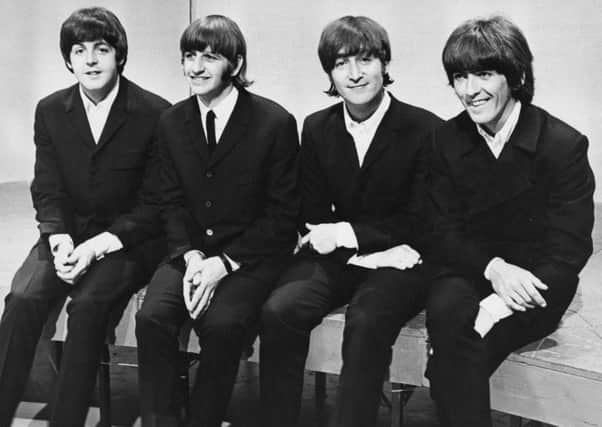Anthony Clavane: Seeing those four words ‘Richard Curtis rom com’ tends to bring me out in a cold sweat


As I confessed in a previous column, I love The Beatles. This is not a particularly controversial stance. I mean, the Fabs – what’s not to love? Seeing those four words ‘Richard Curtis rom com’, however, tends to bring me out in a cold sweat.
So, come June, when cinemas show the latest Curtis vehicle – a no doubt mildly-wacky, adorably-sweary, unrelentingly-schmaltzy affair featuring the floppy-haired Himesh Patel and quirky schoolteacher Lily James falling in and out (and then back in) love with each other to the soundtrack of some of the greatest songs ever written – I will be faced with a dilemma.
Advertisement
Hide AdAdvertisement
Hide AdOn the one hand I am a Beatles nut. In only the past week, for example, I have become excited at hearing the news that The Lord Of The Rings director Peter Jackson is releasing his own version of the classic Let It Be documentary, that a set of legal letters foretelling the band’s split are going on sale for $550,000 and that it is the 55th anniversary of a historic television programme featuring John, Paul, George and Ringo. Yes, it was 55 years ago today, more or less, that The Beatles went on The Ed Sullivan Show to play.
On the other hand I can’t abide Richard Curtis films.
I would rather stick pins in my eyes than watch another group of metropolitan, middle-class southerners fall in and out of love with each other (and then back in again) before discovering that they can’t get by without a little help from their friends. And that all they need is love. And so on.
The Beatles – like the late, great Albert Finney, David Hockney, Shelagh Delaney, Pat Phoenix and so many others – were a part of the vital transfusion that re-energised 1960s Britain with new northern blood. Their brash, truculent personas were an antidote to the upper-middle class tweediness of the 1950s. Reaping the benefits of the new social mobility, they were the vanguard of a generation of edgy provincials determined to barge through the privileged ranks of the elite.
Sadly, as Michael Gove pointed out a few years ago, there has been a reversal of this process, with former public-school boys now having a “stranglehold” on art, music, media and politics.
Advertisement
Hide AdAdvertisement
Hide AdI know you should never judge a film by its trailer, but I am prepared to judge Yesterday by its plot. Which is that the sweet-and-cuddly Patel has a bike accident during a mysterious worldwide blackout and wakes up to find that he is the only person on earth to remember the Fab Four. Naturally, he takes advantage of the situation and pretends that he wrote all their hits. As you would.
This plot seems to suggest, quite rightly, that The Beatles wrote some of the greatest songs of all time. But it also ignores the context of those songs, which were part of a post-war, northern, working-class, cultural revolution.
The premise of Yesterday is that the Beatles’ back pages have become the sanitised, twee, offerings of a mildly-wacky, metropolitan southerner. All the grittiness, edginess and provincial, anti-establishment outsiderness appears to have been erased from the story of those four angry young northern men who changed the course of music forever – not to mention the world.
This cultural appropriation is ironic at a time when social mobility has, as even Gove recognised, stalled. It seems appropriate that the bland, middle-class pop star Ed Sheeran makes a cameo in Curtis’ film. Like Mumford & Sons, James Blunt, Coldplay, Radiohead and Florence And The Machine, he is part of a sea-change that has rendered pop music, as well as acting, literature and journalism, the preserve of the posh.
Advertisement
Hide AdAdvertisement
Hide AdReading the obituaries for Finney I was reminded of a line from his most famous film, Saturday Night and Sunday Morning. “Whatever people say I am,” declares the film’s anti-hero Arthur Seaton, “that’s what I’m not.”
Whatever Richard Curtis says The Beatles are, that’s what they’re not.